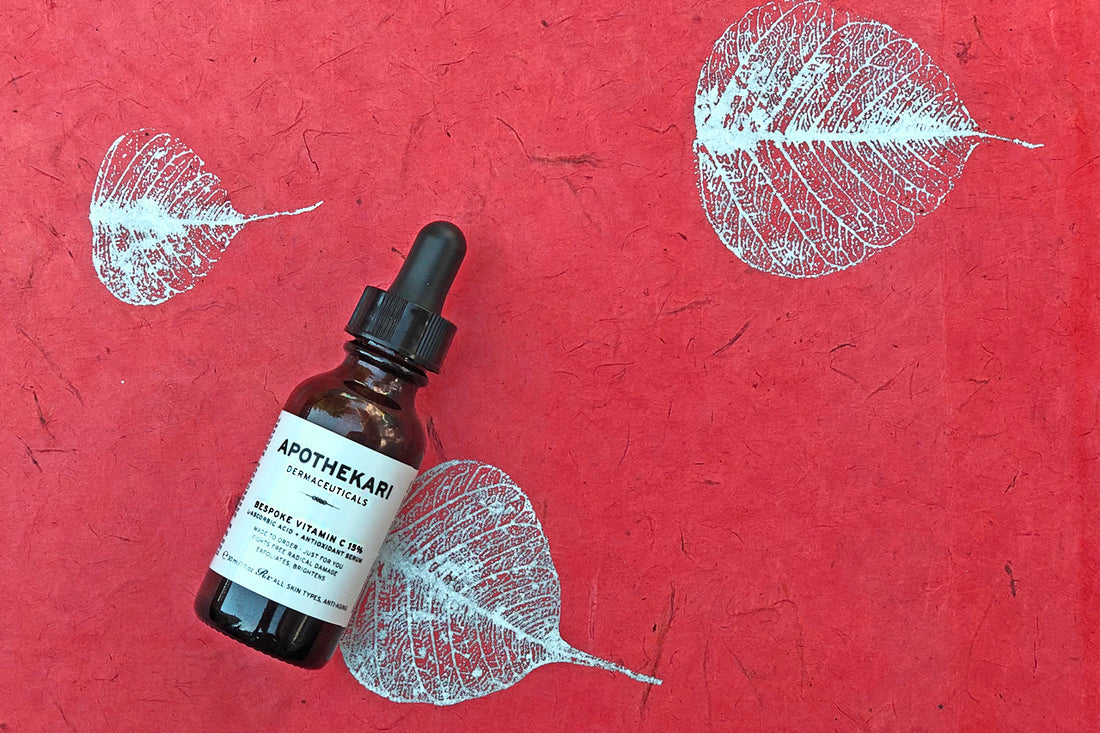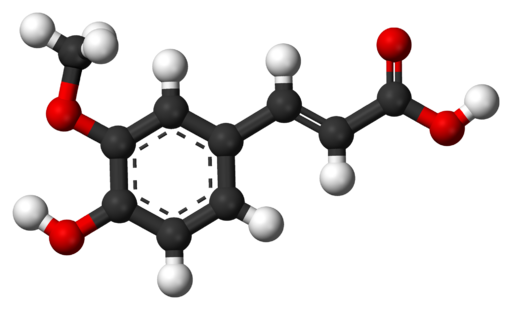Blog
7 Reasons Why You've Got Dull Skin. Let's Get Your Glow Back
If you have dull skin, you need to know that all is not lost. Dull skin is fixable! In this post, we’re diving into why your skin is dull and sharing tips on how to get your radiant glow back. Vitamin C Matters! Vitamin C is one of the ingredients most well known to help revive dull skin into radiant, glowing skin. It is found in our skin’s outermost layers (epidermis and dermis) but it depletes as we get older. Sun damage and pollution can accelerate this decline, leading to skin that looks and feels dull, uneven and less firm. Replenish it with our Bespoke Vitamin C Serum, available in two concentrations 10% (for sensitive skin) and 15% (for normal/tolerant skin). Shop Bespoke Vitamin C 15% Shop Bespoke Vitamin C 10% Why Does My Skin Look Dull and Tired? 7 Reasons 1. You’re Drowning In Dead Skin Cells I know, ewww….You may not know it, but we shed millions of skin cells each day. Most of them just stay put at the top of our skin’s surface, acting like a fine layer of dust, leaving us with skin that looks dull and grey. The Fix? Exfoliate. Remove the dead, dry skin cells so that the new ones can shine through. Ingredients like alpha hydroxy acids and vitamin c (l-ascorbic acid) found in our Bespoke Vitamin C Serum, help to dissolve the dead skin cells, leaving you with brighter looking skin. Scrubs work too (manual exfoliation), but it’s easy to apply too much pressure so we recommend sticking with treatments (like serums) that ‘dissolve’ the skin cells instead. 2. Pollution Every time we step outside, we’re exposing our skin to polluted air, which contains dirt and gases like nitrogen dioxide, ozone, carbon monoxide and sulfur dioxide, which are harmful to skin. These can lead to the development of free radicals. Over time, free radicals damage skin, leading to wrinkles and fine lines plus pigmentation. This uneven skin tone and texture, diffuses light and leaving skin looking dull. The Fix? Wash your face every night to remove dirt and makeup, which can damage skin while you sleep. 3. You’re Stressed Out Stress is inevitable for most of us. It has an impact on our overall wellness and also on our skin. Prolonged stress not only makes you more tired over time, it also impacts the levels of the stress hormone cortisol, along with adrenaline. Increased levels of these hormones caus our heart rate to go up, our blood pressure to rise and sugar to accumulate in our bloodstream. Cortisol increases oil production, leading to acne or sensitive skin. Plus, its presence can increase the break down of skin components like collagen and elastin leading to wrinkles, lines and you got it, dull skin. The Fix? Getting stress under control will help, so try to do that as much as you can. When it comes to your skin, focus on gentle cleansing (our Cloud Nine Foaming Cleansing Crème is a great option) along with moisturizers and treatments rich in antioxidants, and other skin nourishing ingredients to help combat the impact of stress. 4. Blame Your Hormones Fluctuating hormone levels, like those we experience through puberty and menopause, can affect our skin’s appearance. Beyond acne and blemishes, menopause leads to a dip in estrogen levels, which can result in skin that’s drier, leaving it looking dull and lackluster. The Fix? Switch to more hydrating moisturizers and and apply them more often if needed. Consider adding in oils like our Antioxidant Face Oil. Also, lifestyle changes can help to help combat the dryness. More in this post. 5. Your Skin is Dehydrated Without enough hydration, dull skin often follows. Moisture helps to plump up skin cells, leaving them looking more radiant. This isn’t about drinking more water, because increased water consumption can’t make it’s way to dry skin. The Fix? Topical treatments that contain both humectants (like glycerin and hyaluronic acid), attract moisture into skin and emollients (like plant oils or fatty alcohols), soften skin, leaving skin looking less dry and dull. If your skin is particularly dry, add in occlusives (like lanolin, oils and butters) to trap in moisture. 6. Choose Your Drinks Carefully Alcohol and caffeine are dehydrating and can lead to skin that is dry and dull. The Fix? Enjoy them in moderation, swapping out for herbal teas, and non-alcoholic or low alcohol alternatives when you can. 7. Skipping out on Sunscreen UV rays are one of the biggest causes of skin damage. Over time, unprotected exposure to the sun’s rays can damage your skin’s protective barrier, leaving skin looking tired, dark and dull. The Fix? This one’s pretty straightforward – wear your sunscreen every day! What Products Are Good for Dull Skin? If the solutions above weren’t enough, consider the following: 1. Add a Serum to Your Routine Serums are often formulated with high concentrations of active ingredients to help brighten, boost hydration and diminish the signs of aging. Vitamin C serums brighten skin tone, while retinoids help to boost collagen production, pushing away old skin cells and allowing fresh, new ones to come to the surface. There are many forms of vitamin C to choose from – all are great antioxidants but have different effects. L-ascorbic acid has the most skin-related research of any form of vitamin C. Other beneficial forms supported by research include tetrahexyldecyl ascorbate, sodium ascorbyl phosphate, ascorbyl palmitate, magnesium ascorbyl phosphate, ascorbyl palmitate and ascorbyl glucoside. 2. Ditch the Aggressive Cleansers Avoid harsh scrubs and drying soaps, which can irritate skin leaving it looking red, tight and flaky. 3. Stick With Lukewarm Water Hot water can strip away natural oils, disrupting the skin’s protective barrier and leaving it open to dryness (hello dullness) and irritation. 4. Consider a Procedure Topical treatments and lifestyle changes can go a long way but sometimes you may need a bit more help from your dermatologist. Check in with one if you need more help.
Learn moreThis Is How to Avoid Sun Damaged Skin Every Summer
Want to avoid sun damaged skin this, and every, summer? Learn how in this post! SHOP RADIANT SKIN SET Also known as premature aging or photoaging, sun damage refers to skin that’s been wrecked by exposure to the sun’s harmful ultraviolet (UV rays). There are ways to prevent, and to repair, some of this damage. Read on for more information. Every time you go outside or sit by a window without sun protection, or use a tanning bed, you’re putting yourself at risk for skin damage. Over time, this damage can build up, leading to skin changes making you look years older than you normally would. Changes include: Wrinkles and fine lines Age spots and other pigmentation Loose skin Spider veins Blotchy or ruddy complexion Tanning beds can cause these changes to occur very quickly, sometimes in as little as a year! The damage can lead to deeper lines or dry, scaly patches – actinic keratoses (AKs), pre-cancerous skin growth, which can lead to skin cancer. You Can Protect Against Sun Damaged Skin. Reverse It Also Radiant Skin Set The best way to decrease your chances of sun damaged skin is to protect yourself from the sun’s UV rays. Don’t sit out with unprotected skin – wear long sleeves and put on sunglasses Seek shade wherever possible Minimize sun exposure when UV rays are strongest, between 10 am and 4 pm. Use a well-formulated sunscreen with a minimum SPF 30 whenever possible. Curious about how to use sunscreen properly? Read more here. Adding in an antioxidant formulation like our Glow Getter 3, helps protect skin further. Antioxidants like vitamin C and E and green tea, are antioxidants that help protect skin from the free radical damage that comes with sun exposure. Free radicals are unstable molecules that attack skin’s proteins (collagen and elastin, for example), lipids and worst of all, DNA. Antioxidants help protect against this kind of damage. We like to apply Bespoke Vitamin C every morning underneath our sunscreen. Already have skin that’s damaged? Retinoids, a class of ingredients that come from Vitamin A, have been shown to help reverse some of the damage. Retinoids boost collagen production in skin, helping to maintain its firmness. Our Advanced+ Renewal contains retinaldehyde, a gentle and highly effective retinoid, along with other actives, which helps to reduce the appearance of wrinkles and fine lines, brighten skin, reduce hyperpigmentation and protect it against sun damage. Find both serums in our Radiant Skin Set. Is It Time to Visit Your Dermatologist? If your skin is seriously sun damaged, and you’ve tried topical treatments without much success, you may want to check in with your dermatologist. A dermatologist can help to determine if a prescription treatment may be more suitable. Or, if you’re a candidate for a medical procedure: Laser Resurfacing. Intense beams of light can remove layers of sun damaged skin and trigger the formation of collagen, leaving skin looking healthier Chemical Peels. Strips away sun-damaged skin Photorejuvenation (also known as intense pulsed light – IPL). Bursts of pulsed light are used to reach the deeper layers of skin and smooth out sunspots and freckles Microdermabrasion. Buffs off the top layer of skin with sand-like particles, which stimulates the growth of new skin underneath. Bleaching Creams. Bleaching chemicals smooth out uneven skin coloring. Sun Damaged Skin – Prevention is Always Best! Wear sunscreen every day. Minimize sun exposure. Add in an antioxidant and a retinoid into your skincare routine. There’s really no reason for sun damaged skin. We can keep our skin looking good for decades if we just take care of it.
Learn moreThis Serum Can Fight Free Radicals
Learn how to fight free radicals, molecules which can damage skin, by adding this serum to your daily skincare routine. Shop Bespoke Vitamin C 15% What Are Free Radicals? ‘Free radicals’ AKA Reactive Oxygen Species (ROS) impact our health, including that of our skin. They are created in our bodies as a result of exposure to certain different physical or chemical conditions or illness, including pollution, UV rays, some pesticides and smoke along with the consumption of excess alcohol and some fried foods. Free radicals are thought to contribute to diseases such as heart disease, autoimmune disorders (like rheumatoid arthritis), diabetes and degenerative diseases (Huntington’s or Parkinson’s disease) as well as cancer. Age-related changes in our appearance, including a loss of skin elasticity, wrinkles, graying hair, hair loss, and changes in hair texture are also thought to be related to free radicals. That’s why it’s important to fight free radicals. How to Fight Free Radicals in Skin Once free radical damage starts, it’s thought that a ‘cascade’ of damage occurs, producing more free radicals and speeding up the process of cell damage. This buildup of free radicals offers one explanation for why even healthy bodies age and deteriorate over time. Antioxidants are highly stable molecules, which donate an electron to free radicals, reducing their path of destruction and thereby lessening the damage they cause. Because they are so stable, antioxidants can do this without becoming free radicals themselves. Our bodies make several important antioxidants – glutathione, catalase, superoxide dismutase – and we can help to fight free radicals even further by consuming antioxidant rich foods or by applying them topically. One single antioxidant isn’t enough; we benefit from a combination of including the following: Vitamin C Vitamin E Ferulic acid Green Tea Resveratrol Coenzyme Q10. Apothekari Bespoke Vitamin C Serum is made with a combination of antioxidants and designed to fight free radicals, promote collagen synthesis, brighten skin tone and improve the appearance of aging skin. It is available in a 10% (sensitive skin) or 15% concentration (non-sensitive skin) and each bottle is made fresh to order, guaranteeing its potency. Apply to skin daily every morning to fight free radicals leaving skin looking more youthful and radiant. Top Tip: Eat Your Antioxidants While the topical application of antioxidants is beneficial to skin, we can’t discount the importance of nutrition. Fruits, vegetables and spices including onion, garlic, turmeric, cinnamon and ginger are a major source of antioxidants, which can help to reduce the risk of developing certain diseases. Enjoy the variety; it is the spice of life after all!
Learn moreFerulic Acid Skin Care
Ferulic acid is a potent plant antioxidant that has been finding its way into a variety of skin care treatments over the past few years. Found in the bran of rice, wheat and oats, it is also present in coffee, apple, artichokes and peanuts. In plants, it plays a key role in the plant’s self-preservation mechanism, helping to reinforce its cellular wall strength and protecting it from microbial and sun damage. When used as a topical antioxidant, ferulic acid prevents damage caused by free radicals and reactive oxygen species (ROS), which are implicated in DNA damage, cancer and accelerated cell aging. In skin care treatments, ferulic acid is included for not only its antioxidant capacity, but also for its ability to help stabilize Vitamin C, which is prone to oxidation. A study has shown that when ferulic acid was added to a combination of Vitamins C and E, that the photo protective capacity on the skin was doubled. Additionally, there is a small amount of research showing that oral supplements of ferulic acid can inhibit the production of melanin, thereby aiding in the process of skin lightening. You can find ferulic acid in: Apothekari Antioxidant Firming Eye Gel: Prevents signs of aging Corrects signs of photodamage Reduce the appearance of puffiness and under-eye bags. Use it to strengthen the under eye area, leaving it looking healthier, brighter and younger-looking. Apothekari Brilliant C Serum: Improve the appearance of aging and fine lines Promote even skin tone, erasing pigmentation and age spots Increase collagen synthesis and elastin production leading to firmer more toned skin. Ideal for combination to oily skin. Apothekari Undercover Agent Serum: Protects skin from oxidative and environmental stresses (pollution, UV rays) that cause premature aging Prevents damage by neutralizing free radicals Repairs existing photodamage and stimulates collagen production Reduces sunburn cell formation Prevents the formation of thymine dimers (DNA mutations that can contribute to the development of skin cancer). Ideal for normal to dry skin.
Learn more




